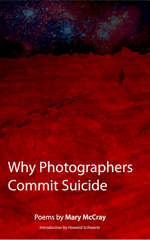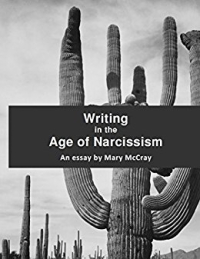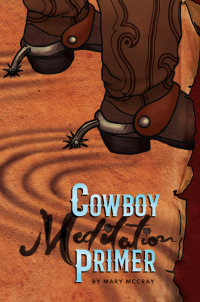

I hear there’s a saying in recovery therapy that says, “don’t should on me.”
And I think about this phrase a lot when I’m reading and hearing how poems should be this way or that way, how people should be this way or that way, or how the problem with X,Y or Z is that it should be. Men should be. Women should be. The Other Side should be.
I’m slowly reading a book called Advanced Poetry, a sort of poetry course put together by Kathryn Nuernberger and Maya Jewell Zeller.
Each chapter has writing exercises and extra readings online and so reading it is taking me time. In fact, I’m only up to the chapter about a poet’s “voice” where they spend time discussing the New York School poets, specifically Frank O’Hara and all the experimental alternatives to writing confessional poetry. The chapter explores the tensions between the two exercises, writing confessional/identity poetry and writing experimental/modernist poetry, illustrated most clearly in two essays the author’s have included online.
“Delusions of Whiteness in the Avant-Garde” by Cathy Park Hong was a somewhat ground-breaking article that calls out conceptual or experimentalist poets for being clueless, and alternatively insensitive or rude, on the issue of identity politics, for not producing pure-language experiments, as they do, or for writing, as Stephen Colbert’s character would say on his old Comedy Central show, from the vantage point where “I don’t even see race.”
However you feel about the term “identity politics,” marginalized groups sharply feel their status in the world. For example, I can’t forget at any time that I am a woman. Honestly, I’ve led a pretty easy and privileged life. But I can still face obstacles as a woman. What if I get pregnant? What if I apply for a manly job, like kicker on a football team? What if I piss-off either other women or men but saying something perceived to be wrong for my gender? My womanness is very much a part of my idea of myself.
And my ideas of myself are always tricky. I get tangled up in them when I try to seek out a religious or cultural identity for myself because my father grew up on Indian reservations (as a white boy) and passed a lot of cultural artifacts down from the Hopi and Tohono Oʼodham (which is the childhood and young adulthood he experienced). That was passed down with our New Mexico heritage which is very hybrid as well. However, genetically I am not Hispanic or Native American. So what am I, culturally speaking? You can’t escape focus on your identity when it is blurred or marginalized or hated. You don’t have the luxury to not think about it. The world forces your identity upon you. And then you can criticized for talking about it.
From the point of view of modernists and experimentalists, we should be able to shred our identities and write in an authorless, language-based way. Hong calls this out as clueless. It is possible we will never get to a place of social equity ever and pretending this can be so (through art manifestos) doesn’t ever make it so.
The other essay is “Delusions of Progress” by Daniel Borzutsky which really takes some time to unpack Hong’s statements.
The experimentalists (or conceptualists) are pretty cliquey. That’s another issue. They can be pretty dismissive of other poetries. On the other had, political writers operate with such urgency, they often feel the same way. And their point can be well taken. For example, if we don’t solve the environment crisis and we all die off, there will be no humans to make the poetry experiments. So there.
This is not a new problem. I’m also reading about the beginnings of modernism. Modernist poets like T.S. Eliot wanted to push back against “sentimental poets,” women poets of the time. Poetry should be to escape the personal, he believed. Confessional poetry sprouted up to push back against that. Also, there were some women and minority poets during the time of Eliot who were using non-experimental or traditional forms and structures to talk about their lives in political ways.
It has always seemed to me more a matter of privilege than overt racism, although you could draw political lines between the two groups. The modernists were ironically very politically conservative. Eliot and Pound were famously antisemitic during WW2. They latter-day New Critics not only believed a poem should stand as an artifact free of biography, but as a critical force they shut down the poetry of the political left which disappeared from the canon and the academy for almost 100 years, along with popular poets of the day, whatever their politics were, poets like Edna St. Vincent Millay, Louise Bogan…etc. More recent modernists evaluations and anthologies in both America and England are just beginning to bring those poets back into our critical awareness.
This is not to say some experimentalists are not racist. But many of them just have the privilege of their race or sex not being a barrier or under threat. They can’t or don’t want to write about their whiteness. So they tool around with words instead. I just want to say that their doing this isn’t the problem. Their experiments in and of themselves are not clueless or wrong. It is all their critical judgements, their exclusive shoulding, their grand ideas about their own place in the poetry canon that is clueless.
I do get energized, myself, from procedural and language experiments but I have always sympathized with poets who want or need to write poems of witness and social concern. And now that I feel my own future jeopardized as a person in the new era of aggressive incels, I understand this much more viscerally.
Borzurtsky’s article is a good discussion on these struggles and he comes to conclude that maybe this isn’t a discussion about poetry at all, but how you “position yourself in the world, about how you want to live your life.” He says, “the politics of form is really a discussion about the politics of content.”
To dismiss identity poetry is tragic, he feels, because he has seen “poetry have a transformative effect on individuals because of a poet’s willingness to speak, directly and honestly and vulnerability, about ‘identity,’ about political and social experience, about what it means to survive in a world that wants to kill you.” (or enslave you, or make rape legal…)
And we have to remember, in some countries you were (and still are) killed or jailed for writing witness or political poetry. To say this kind of poetry isn’t “serious” enough is just absurd. No government is going to kill you for writing a procedural poem.
Borzurtsky goes on to say “I think about how small and incremental it feels to write poetry in our over-saturated, a-political landscape.”
Which reminds me of the joke, “Why are poets so cutthroat? Because the stakes are so small.” Poets are already marginalized. This becomes a nonsensical skirmish at some point. Because I would never want to see the poetries of witness vs. experiment made into opposing camps. Not only are there excellent and important poets who traffic in both exercises, we desperately need them both to exist.
I’ll say that again: we desperately need them all to exit.
 We absolutely need a poetry of witness, identity, and social concern. But we also need the laboratory poets, the scientists’ scientist, the poets’ poets like Marianne Moore and Gertrude Stein (who ironically supported some antisemetic bad actors herself because she was so vehemently anti-left). Many Harlem Renaissance writers and women writers at the onset of modernism used traditional poetry forms to protest the idea that they were not smart or genius enough to write in forms (Claude McKay, Edna St. Vincent Millay). We need all the things.
We absolutely need a poetry of witness, identity, and social concern. But we also need the laboratory poets, the scientists’ scientist, the poets’ poets like Marianne Moore and Gertrude Stein (who ironically supported some antisemetic bad actors herself because she was so vehemently anti-left). Many Harlem Renaissance writers and women writers at the onset of modernism used traditional poetry forms to protest the idea that they were not smart or genius enough to write in forms (Claude McKay, Edna St. Vincent Millay). We need all the things.
Forms (like music genres) have no politics. It’s the judgement about them that has politics.
By the way, Advanced Poetry as a text-book is happily inclusive of British and American poets of all kinds. It really puts the “trans” in trans-Atlantic.
 I’ve been meaning to do this post for many months now but was unable to carve out the time. Recently, there was an Intro to Anthro With 2 Humans podcast about Roman food (“Pour Some Garum on Me“) and just like the Egyptian sex poems book, I was able to find literary crossover as a stream of books come through the house.
I’ve been meaning to do this post for many months now but was unable to carve out the time. Recently, there was an Intro to Anthro With 2 Humans podcast about Roman food (“Pour Some Garum on Me“) and just like the Egyptian sex poems book, I was able to find literary crossover as a stream of books come through the house. The Madeleine is probably the most famous depiction of food’s impact on memory and the sublime, from Marcel Proust’s novel In Search of Lost Time: Swann’s Way.
The Madeleine is probably the most famous depiction of food’s impact on memory and the sublime, from Marcel Proust’s novel In Search of Lost Time: Swann’s Way.
















